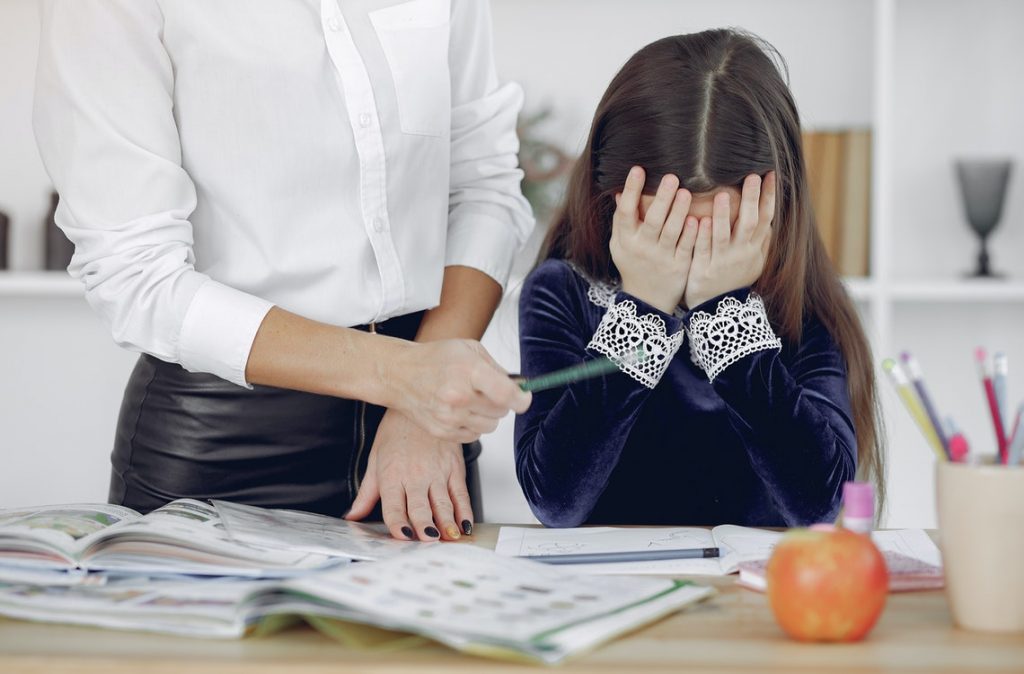These days, it is so common to hear that children have anxiety issues. Children these days develop at a faster pace and are faced with many complex situations from a young age. In part due to our fast paced world and how things have developed in the world, it’s as if our kids are forced to grow up quickly and face an adult world at a tender age.
Sometimes, unaware to us, many things may weigh heavily on their shoulders. When they don’t know how to cope, they may start to feel anxious. Over a prolonged period of living with ever-growing anxieties, their well-being is definitely affected.
There are things we can do to help them cope with their anxieties. But first, let’s learn to spot the signs.
Symptoms of Anxiety in Children
Pay attention to the child and see if they show some of these signs:
- Problem with concentration
- Easily irritable or angered and having frequent outbursts
- Lacking in confidence
- Unable or do not want to handle simple everyday challenges
- Avoiding daily and social activities
- Suddenly being clingy
- Not eating well
- Not sleeping well
- Waking in the middle of the night, having bad dreams
- Bed-wetting
- Speaking negatively, having negative thoughts
- Often complain of stomachaches
- Being tearful more often
All of us are anxious at one point or another, including children. When exams draw near or competitions they’re taking part in are approaching, they are bound to be somewhat nervous and anxious.
There are varying degrees of anxiousness, and some will go away after a stressful event has passed. It’s the severe and prolonged anxiety that we worry about, as it can harm a child’s mental and emotional state. It can cost them their self-esteem and confidence level.
These Events Can Cause Anxieties in Children
- Being a bully victim
- Facing harsh teachers
- House moving that involves change of school and environment
- Being neglected
- Being ostracised
- Witnessing parents arguing or fighting
- Death of someone known to them
- Social anxiety
How to Help an Anxious Child
If you suspect that your child may be suffering from anxiety, the first thing to do is to get your child to talk. It need not be a serious sit-down conversation, as he or she may not open up in such a setting.
In a relaxed and casual environment, try to strike up a gentle conversation and find out what your child feels worried or anxious about. Each child is different, and we as mummies learn how best to talk with them, so deploy the best communication style you’ve got to get your child talking to you.
Just bear in mind to hold these conversations with a supportive encouraging and nurturing tone. When they open up and talk about it, give them assurances that you are listening and understand their feelings.
Don’t turn it into an interrogation, or being too analytical over it. At this point, they need a listening ear more than one that tries too hard to dismiss or solve the issue right away. Approach slowly so that they feel safe unloading to you what’s disturbing them. Know that it isn’t easy for them to talk about it.
If after a few tries, they’re still not opening up, do not give up. Don’t push or get impatient and agitated. It just means that they have not found a way to talk about it, so keep trying to encourage them to open up.
Once they have offloaded their troubles, it’s equally important to take the next step of helping them find solutions. Try to derive at them together, thinking through options and making suggestions. Instead of us dumping solutions on them and expect them to follow.
Sometimes, insisting that they take our solution and do it our way may backfire and cause them even more anxieties.
Other Ways To Help Children Cope With Anxiety
First, we can teach our child to recognise signs of anxieties in themselves. Then, he or she is encouraged to seek help when they feel that it is needed.
We can help to develop a simple daily routine for them, as routines can give them a sense of assurance and put them in a comfort zone.
For children who are anxious due to traumatic or distressing events, find a professional counsellor who can work with them more effectively.
Meditation for kids, even a short 10-minute session, can help to calm the mind and emotions. We’re not talking about high-level medications, but simple ones for toddler, pre-schoolers and older children.
A pet can be a good companion to children, and keep them occupied in a healthy way. Pets can be calming to children too. Pets can bring many benefits to a child’s life.
Some form of healthy distractions can be helpful to younger children. They can read a book, play some games, watch a show or even listen to songs or music to take their mind off.
Keep Our Cool And Stay Calm
As much as we would like to help our children to be rid of their anxieties, we need to understand that it takes time and patience to work through it together. We feel disturbed and saddened for the state that our child is in, but we need to stay calm ourselves and not develop a bout of anxieties ourselves.
Know that as long as we can be there for our children, keeping them communicative in two-way conversations and showing them love and support, they can win over their anxieties.
If your child is facing a severe state of anxiety, you may want to seek professional help. Here are some avenues you can refer to should you need to reach out to them.
